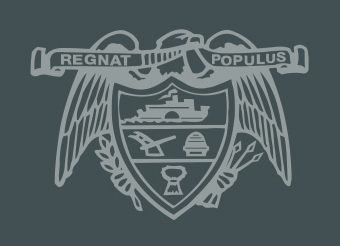
Patrick Henry fired the first rhetorical shot of our war for independence when he proclaimed "give me liberty or give me death" in a speech before the Second Virginia Convention in March 1775.
What Henry eloquently expressed (with great effect, for in the audience and giving approval were George Washington and Thomas Jefferson) was the idea that liberty was worth sacrificing everything for; that upholding the "rights of Englishmen" that were being transgressed upon by an English monarch justified the revolutionaries risking their fortunes and even lives.
Ninety-five years later, Abraham Lincoln justified the horrible bloodshed of the Civil War when he asserted that "Fondly do we hope--fervently do we pray--that this mighty scourge of war may speedily pass away. Yet, if God wills that it continue until all the wealth piled by the bondman's 250 years of unrequited toil shall be sunk, and until every drop of blood drawn with the lash, shall be paid by another drawn with the sword, as was said 3,000 years ago, so still it must be said: 'The judgments of the Lord are true and righteous altogether.'"
When Lincoln gave his Second Inaugural Address, the bloodiest war in American history was drawing to a close. It had been fought to preserve the Union, but also, more clearly as it continued and more importantly given the purposes for which that Union was established, to free one-eighth of the American population from bondage.
Thus, like the Revolutionary War that Henry's speech would help ignite, Lincoln was telling us that, whatever the horrible price that had already been paid in blood, it would continue to be paid, again and again, until there was no more left to spill on behalf of a moral cause, liberty.
If the founders were fighting for their own liberty, then the Union Army was fighting more for the liberty of others, as captured in the title of perhaps the best recent account of the conflict, James McPherson's "Battle Cry of Freedom" (a consideration which should at least undermine the idea of reparations by raising the question of their collection from the descendants of the thousands of white Union soldiers who gave their lives at Gettysburg, Shiloh, and Vicksburg).
Herculean efforts in the service of freedom were also suggested in another memorable inaugural address nearly a century later, when John F. Kennedy promised to "pay any price, bear any burden, meet any hardship, support any friend, oppose any foe, in order to assure the survival and the success of liberty."
With such expressions of determination to wage the Cold War against a totalitarian foe whose very ideology required suffocation of it, we were effectively arguing that freedom was indivisible, that it would not be secure here at home if denied to peoples thousands of miles from our shores in lands that many Americans had not yet heard of.
That Americans have enjoyed a degree of freedom unprecedented in human experience is a consequence of the unprecedented American dedication to it; a relationship perhaps worth remembering when considering the degree to which that freedom has been restricted to a greater extent than at any point in our history in the last nine months on the pretext of combating a virus that, thus far, has killed roughly 263,000 Americans in a country of 330 million (for purposes of morbid comparison, the Civil War Lincoln pledged to prosecute at whatever cost necessary killed an estimated 700,000 in a country with a population less than 10 percent of that, what today would be an adjusted loss of more than six million).
Dr. Anthony Fauci now tells us it is time to outgrow our eccentric commitment to freedom (what he calls "independence") and "do what you're told," while elected officials increasingly accustomed to ruling by fiat tell Americans how many folks they can have from how many families positioned around the turkey, dressing, and cranberry in their private residences and encourage their neighbors to provide the intel to help authorities know which doors to knock on.
We are enjoined to not just do what we are told for the sake of public health, but also told to police our neighbors to make that they are also doing it.
That there has always been a plethora of pretexts for restricting freedom explains both why it has been so scarce in the human experience and why it is to be so cherished and clutched to whenever found.
As fear (always the greatest threat to freedom) drives us toward another (no longer unprecedented) abridgement of freedom via lockdown, we might, lest we suddenly discover that a "new normal" has been established that is substantially less free than the old, be well served to remember that rights that are contingent are not really rights at all, merely temporary blessings from those on high, cases of the despot being a bit less despotic on a good day.
If we suddenly elevate public health or safety above the value of freedom, to the status of a new despot, or, worse still, fail to recognize amid the fear and hysteria that we have even done so, don't we become a different people and a different nation dedicated to a different proposition?
--–––––v–––––--
Freelance columnist Bradley R. Gitz, who lives and teaches in Batesville, received his Ph.D. in political science from the University of Illinois.
"freedom" - Google News
November 30, 2020 at 07:14PM
https://ift.tt/37dZ7MM
Freedom and safety - Northwest Arkansas Democrat-Gazette
"freedom" - Google News
https://ift.tt/2VUAlgg
https://ift.tt/2VYSiKW
Bagikan Berita Ini














0 Response to "Freedom and safety - Northwest Arkansas Democrat-Gazette"
Post a Comment